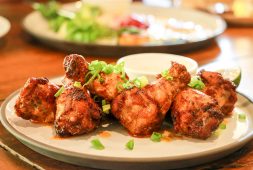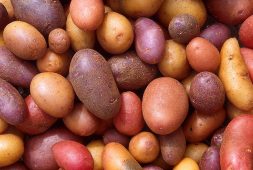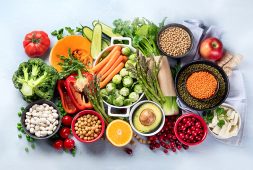
The world seems to be obsessed with good health, and for good reason. The things we do and the way we eat and drink have major effects on our physical health. But what people are also learning is that everything we consume also has an effect on our mental health as well, which causes stress and anxiety.
According to the Anxiety and Depression Association of America, anxiety disorders affect at least 40 million adults in the US. According to one accredited practicing dietitian in Australia, there is actually a big link between what you eat and how you feel.
Here’s What You Need To Know
Australian psychologist, Melissa Wilson, explains, “The relationship between diet and mental health is complex. Our bodies have nutritional needs which support its daily functioning. This means what we feed our bodies can have an impact on the functioning of different organs of our body, including our brain.”
She adds, “Our brain needs particular nutrients such as protein and vitamins to make the chemicals that keep it functioning well. A number of nutrients are involved in mental health, including omega 3 fatty acids, vitamin B and D, folic acid and zinc. Often a deficiency in these and other nutrients can increase symptoms of mental illness. For example, folic acid is used to make the chemical serotonin and a deficiency of serotonin is linked to symptoms of depression.”
Another accredited practicing dietitian, Lisa Donaldson, who is also the spokesperson for the Dietitians Association of Australia shares that gut health and mental health have a significant connection as well.
She explains, “Recently a convincing amount of research is revealing strong links between our gut bacteria and our mood. Having a healthy gut microbiome and including gut-friendly foods to help boost gut function could have a key role in lowering stress and inflammation in the body, and in turn boost overall health.”
Here Are Foods You Shouldn’t Eat
Wilson clarifies, “There are some foods and drinks that have chemicals which stimulate our bodies and can produce physical symptoms of anxiety.” But the problem with that is they also tend to be the same foods people crave when they’re in a bad mood.
Donaldson reiterates, “It’s often foods that we choose to ‘pick us up’ that can often ‘bring us down.’ A diet that is laden with heavily processed or refined foods (chocolates, biscuits, chips) may help us feel good in the short term, but they are broken down quickly and can leave us feeling sluggish. These foods are often nutrient poor and do very little to sustain us.”
More often than not, binge eating chocolate and getting a sugar high can also lead to a downward spiral into anxiety.
Wilson expounds, “Sugar from high-sugar foods or simple carbohydrate foods such as pasta, produces a quick spike in our blood-sugar levels which can quick drop again. This sudden drop in blood-sugar can also mimic physical symptoms of anxiety. While this is important for everyone to know, those with hypoglycemia may be affected by this more severely.”

Another thing to consider is the way you choose to wake up in the morning, as well as how you end your day. These methods can also majorly impact your entire day.
Wilson illustrates this by sharing, “Caffeine acts on our nervous system and stimulates the body, which is why we can find it hard to start the morning without having our daily coffee. If we are already experiencing anxiety, caffeine can act to increase the physical symptoms of anxiety such [as] muscle tension, shakiness, increased heart rate or palpitations and perspiration. Caffeine can also cause panic in people without an anxiety disorder.”
Another way to actually make things worse is by looking for a glass of wine or alcohol to help deal with a difficult day, or possibly social anxiety. Wilson discloses, “Alcohol is commonly used in an attempt to help relieve anxiety, particularly in social situations. However, when alcohol is leaving your body it agitates the nerves in your body leaving you in an agitated state and also disrupts your sleep. This can then increase feelings of anxiety.”
Here Are Foods You Should Eat
Donaldson explains the reason why eating a healthy, balanced diet is truly the way to go. And there are certain foods that shouldn’t be missed considering they have the ability to actually improve mental wellbeing.
She goes on to say, “Choosing a diet rich in fermentable fibers (prebiotics) such as vegetables, fruit and whole grains, and fermented foods (probiotics) such as yoghurt, sauerkraut, kimchi, tempeh and kefir – will help feed and boost your gut bacteria. In turn, this is likely to help lower inflammation, to help the body feel less stressed.”

She also says, “B vitamins are involved in neuronal function and brain health, so including a range of whole grains, vegetables and lean meats is an easy way to ensure adequate intake throughout the week. Zinc, found in foods like prawns, beef, pumpkin seeds and oats, can affect the action of serotonin (the happy hormone) in our body, so can be hugely beneficial. Other nutrients of interest include omega 3 and vitamin D. These can be found in the diet via foods such as oily fish, lean meats, eggs and dairy products.”
In the end, in order to help manage anxiety using food as a tool, be mindful of what you should and shouldn’t put in your mouth. It could be the difference between feeling blah and feeling amazing!



